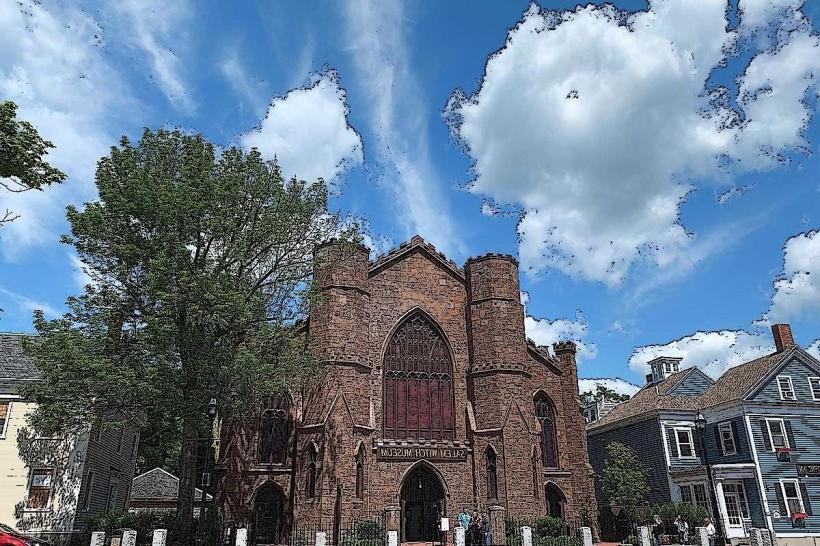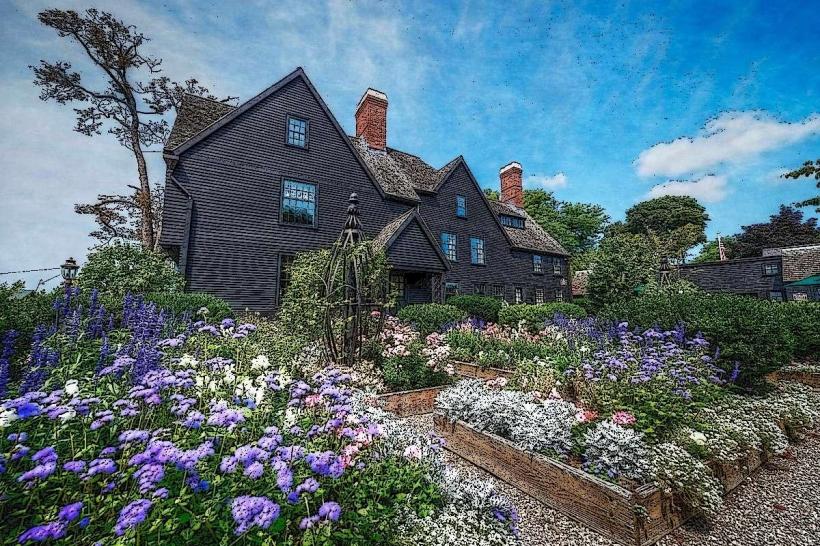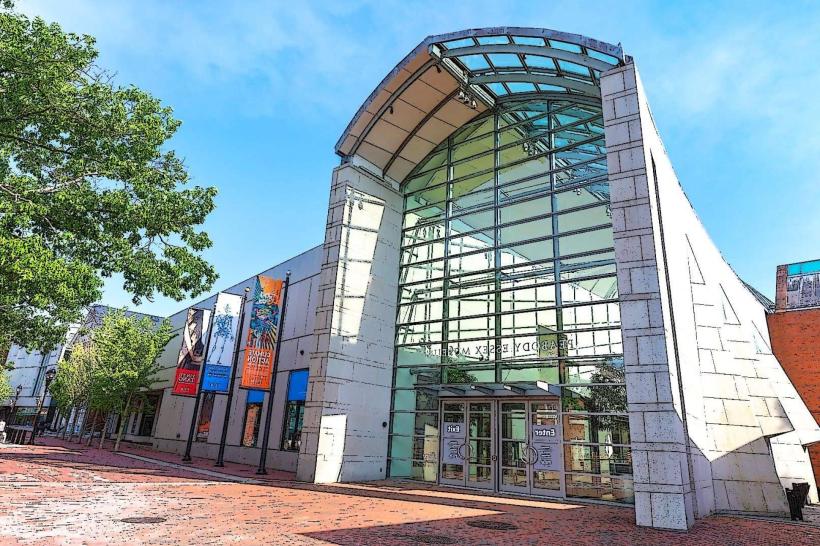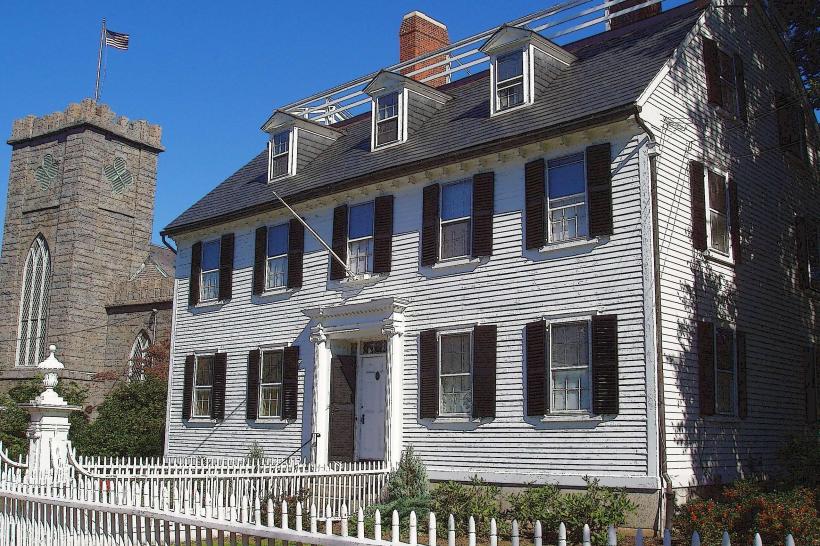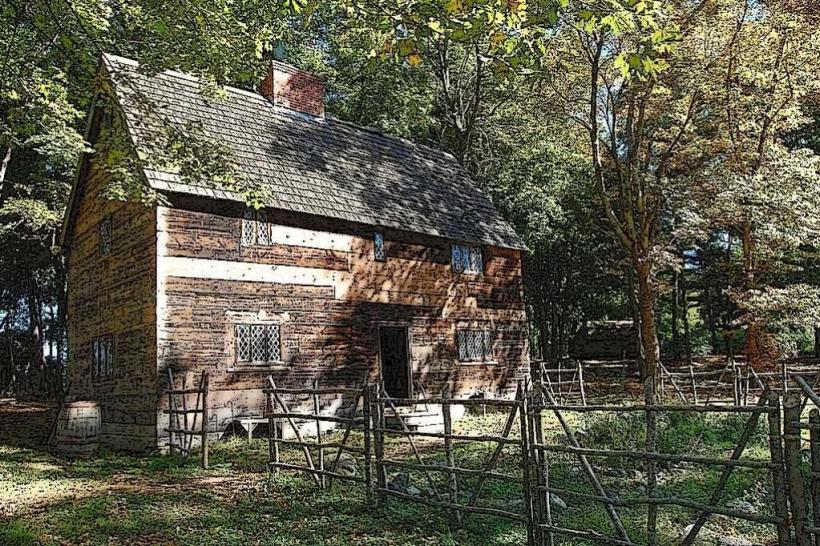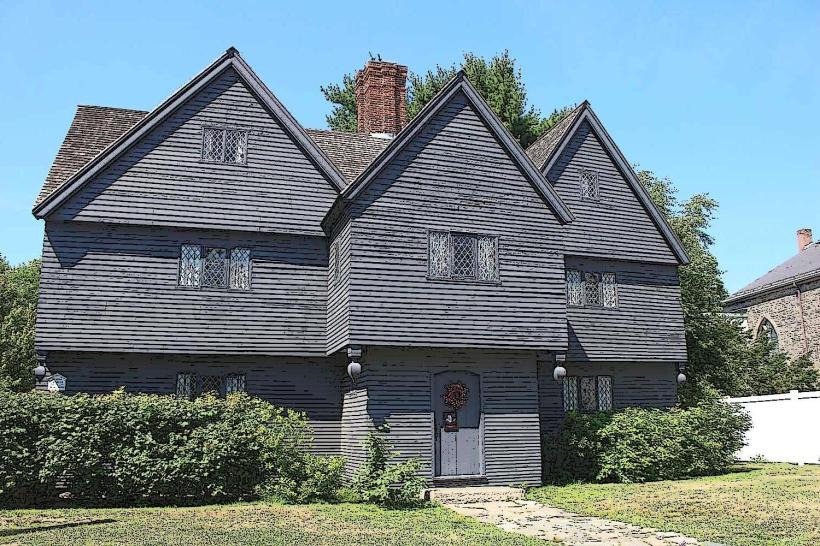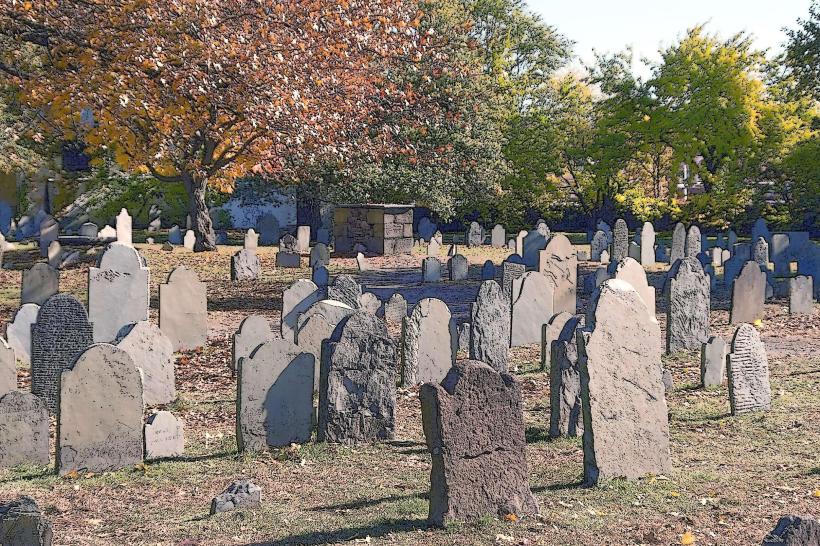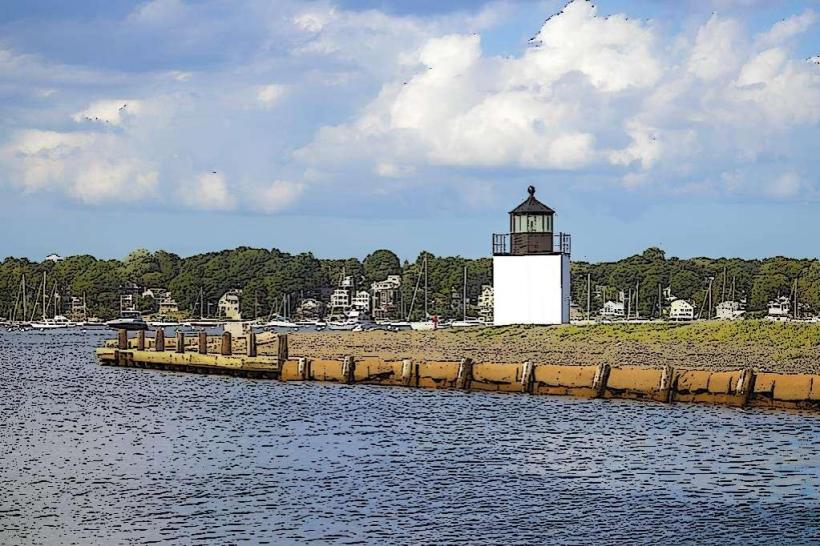Information
Landmark: Salem Witch Trials MemorialCity: Salem MA
Country: USA Massachusetts
Continent: North America
Salem Witch Trials Memorial, Salem MA, USA Massachusetts, North America
Salem Witch Trials Memorial – In Detail
The Salem Witch Trials Memorial is a solemn and contemplative site located in Salem, Massachusetts, dedicated to the memory of the 20 individuals who were executed during the Salem Witch Trials of 1692. Situated adjacent to the Old Burying Point Cemetery on Liberty Street, the memorial serves as a place of reflection, mourning, and historical reckoning, offering visitors a powerful reminder of the consequences of hysteria, scapegoating, and injustice.
Historical Context
The Salem Witch Trials (1692):
In a period of intense fear, superstition, and Puritanical rigidity, over 200 people were accused of practicing witchcraft in colonial Massachusetts. Twenty were executed-19 by hanging and one by pressing to death-while many others languished in prison under harsh conditions.
Victims:
Those condemned were men and women, young and old, and from various social backgrounds. Many maintained their innocence until their deaths. Notable victims include:
Giles Corey (pressed to death)
Rebecca Nurse (a respected elderly woman)
George Burroughs (a former minister)
Sarah Good, John Proctor, and others who have since become symbols of injustice
Creation of the Memorial
Year Dedicated:
The memorial was officially dedicated in 1992, marking the 300th anniversary of the trials.
Designers:
Created by internationally acclaimed artist Maggie Smith and architect James Cutler, the memorial is minimalist in style but rich in symbolic meaning.
Purpose:
Unlike a museum or exhibit, the memorial is designed to offer a quiet, respectful environment where visitors can consider the human cost of prejudice and fear-driven governance.
Memorial Design and Symbolism
Layout:
The memorial consists of 20 stone benches set into a low granite wall, each bench inscribed with the name of a victim, their execution date, and the manner of death.
Inscribed Words:
The accused individuals’ last words are etched into the entry stones, partially obscured by the wall to symbolize how their voices were silenced and ignored by society.
Surroundings:
The memorial is framed by a grove of locust trees, which were chosen for their biblical associations with affliction and endurance. A stone path leads visitors through the site, encouraging quiet movement and personal contemplation.
Integration with the Old Burying Point Cemetery:
The memorial is situated beside one of the oldest cemeteries in Salem, where some of the trial judges and prominent Puritan families are buried-highlighting the contrast between those who judged and those who were condemned.
Purpose and Message
Historical Reckoning:
The memorial exists not just to honor the dead but to recognize the deep injustice that occurred and to warn against similar patterns of persecution in any form-religious, political, or social.
Moral and Civic Reflection:
It calls on visitors to reflect on themes of tolerance, courage, and the responsibility of individuals and institutions to protect the innocent and uphold justice.
Visitor Experience
Open-Air Space:
The memorial is open to the public year-round, free of charge, and accessible day and night. It offers a quiet place of contemplation in contrast to Salem’s more commercial tourist areas.
Emotional Impact:
Visitors often find the memorial emotionally powerful due to its simplicity and the gravity of the names and words displayed. It is not uncommon to see flowers, stones, or written tributes left on the benches.
Proximity to Related Sites:
Located in the heart of downtown Salem, it’s steps away from the Salem Witch Museum, Peabody Essex Museum, and the historic Charter Street Cemetery.
Legacy and Modern Significance
Apology and Recognition:
In 2001, the Massachusetts state legislature officially exonerated the remaining accused victims not previously cleared and issued a formal apology for the trials-an act long overdue and symbolically aligned with the creation of the memorial.
Educational Role:
The memorial plays an important part in Salem’s broader mission to promote awareness of the trials as a cautionary tale. It is often included in school field trips, historical walking tours, and scholarly research.
Summary
The Salem Witch Trials Memorial is a place of deep historical and emotional resonance. Unlike museums or interpretive centers, it communicates through stone, silence, and simplicity-inviting reflection on justice, intolerance, and the enduring need to safeguard human dignity. In a city known for its association with witches and the supernatural, the memorial re-centers the focus on the very real people whose lives were destroyed by fear and fanaticism. It stands not only as a tribute to the victims but as a timeless reminder of the human cost of injustice.

